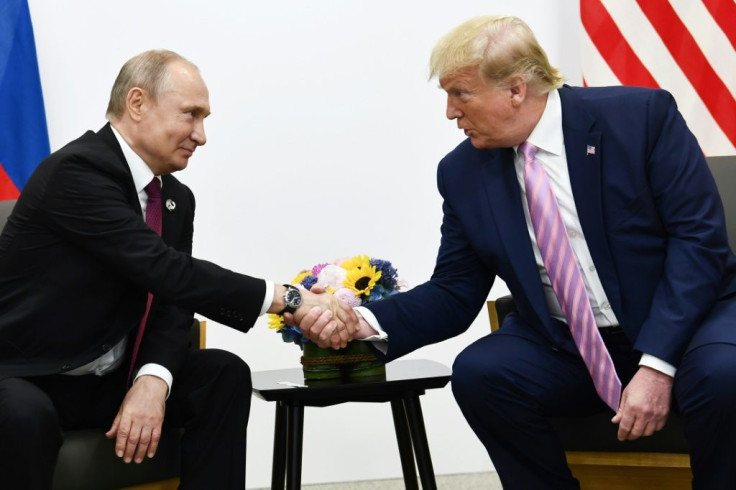Is Trump A Russian 'Agent'? Russian State Media Says He Is

KEY POINTS
- A recent news segment on Russian state TV referred to Trump as an "agent"
- Other Russian TV pundits also referred to Trump as needing to eventually flee to Russia
- While such references were likely meant in jest, it also serves Putin's purposes to sow discord in the U.S.
Since the early days of President Donald Trump’s administration, critics have accused him of being an asset for the Russian government. Much hay has been made of this accusation, culminating in Robert Mueller’s investigation which released its report earlier this year. Despite few tangible results coming from that report, Russian state media, in a characteristic mocking fashion, has offered their own “admission” about Trump’s Russian ties.
This past weekend, during a television news program that airs on state-owned Russia-1, a guest on “Sunday Evening With Vladimir Soloviev” suggested that Trump will face a “very unhappy period” after he leaves the White House. The host, Soloviev, sarcastically suggested Russia may need to set aside an apartment for Trump to eventually flee to.
During a discussion about the tense state of relations between the United States and Russia, Soloviev said that while that may be the case, it isn’t so “between the presidents.”
In a news segment that also aired on Russia-1, dubbed “Puppet Master and ‘Agent’ – How to Understand Lavrov’s Meeting With Trump,” Russian Foreign Minister Sergey Lavrov's meeting with Trump in the Oval Office last week was debated.
The typically Russian penchant for acerbic, derisive humor employed on state media is a means, not an end for Russian interests.
Despite Russian state media referring to Trump as being a Moscow “agent,” it shouldn’t necessarily be seen as a confession, in so many words. When it comes to government-directed media in Russia, there is a strong affinity to taunt and antagonize foreign powers and their leaders in a deliberately sardonic fashion, which is often accompanied by an eye roll.
In these particular cases, it’s not only being done to mock Democrats who insist Trump is a Russian asset but to intentionally stir the pot and rile up these groups who might be inclined to take the sarcasm as baldfaced admissions.
The fondness Russian President Vladimir Putin and his government have for Trump has, arguably, been highly overstated in American media. The reality is that while it is indisputable that the Trump administration has taken actions that can be viewed as highly favorable to Putin, at the end of the day the Russian leader is primarily interested in fomenting political chaos in the United States and in Europe. These news programs are merely one of the ways this is done.
© Copyright IBTimes 2024. All rights reserved.






















